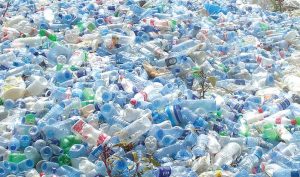The third round of negotiations between UN Member States began in Kenya on Monday, November 13, 2023, to finalise the details of a globally binding agreement to drastically reduce plastic waste.

The hope is that a globally binding agreement can be forged, to minimise the harmful effects of plastic pollution on the environment and human health.
According to the plastics manufacturers’ association Plastics Europe, 400.3 million tonnes of plastic were produced worldwide in 2022 – twice as much as in 2002.
More than 90 per cent of this was made from petroleum-based materials, even though the proportion of bio-based and recycled raw materials has increased.
The biggest concern is the life cycle of plastic because once produced, it takes centuries for plastic to decompose again.
According to scientists, of all the plastic waste generated between 1950 and 2018, 76 per cent was disposed of in landfill sites or in the environment.
It is estimated that between 4.8 and 12.7 million tonnes of plastic waste end up in the oceans every year.
There, it causes damage to ecosystems, whether as tiny particles known as microplastics or through the release of toxic chemicals.
According to a report by the UN Environment Programme (UNEP), global plastic pollution could be reduced by 80 per cent by 2040.
In March 2022, representatives of more than 170 countries at the United Nations decided to strive for an agreement on dealing with plastic.
The goal under the agreement was to define binding measures for the entire life cycle of plastics from the quantities in which individual materials are produced to the design of plastic products and the disposal and recycling of plastic waste.
Following meetings in Uruguay and France, the round of negotiations in Kenya is the third of five.
A summit of states is expected to finalise the agreement in mid-2025, however there is still a long way to go before then.
Negotiators emphasise that it is not about demonising or banning plastic. Rather, the agreement should determine whether and to what extent the production of various plastics should be restricted and by what means this should be achieved.
The agreement would regulate the use of particularly harmful chemical components.
It would also deal with the handling of plastic waste both in individual countries and across national borders, as well as the collection and reuse of recyclable materials.
Financing and accountability mechanisms also need to be clarified.
Many fundamental questions are still unanswered, such as what is actually covered by the scope of the agreement because the colloquial term plastic encompasses many different types of plastic.
There is disagreement on the question of legally binding targets and whether and to what extent production will be limited.
Oil-rich countries in particular want to focus on recycling processes rather than restrictions on production.
Different interests also clash when it comes to financing as developing and emerging countries expect industrialised countries to help cover the costs.
